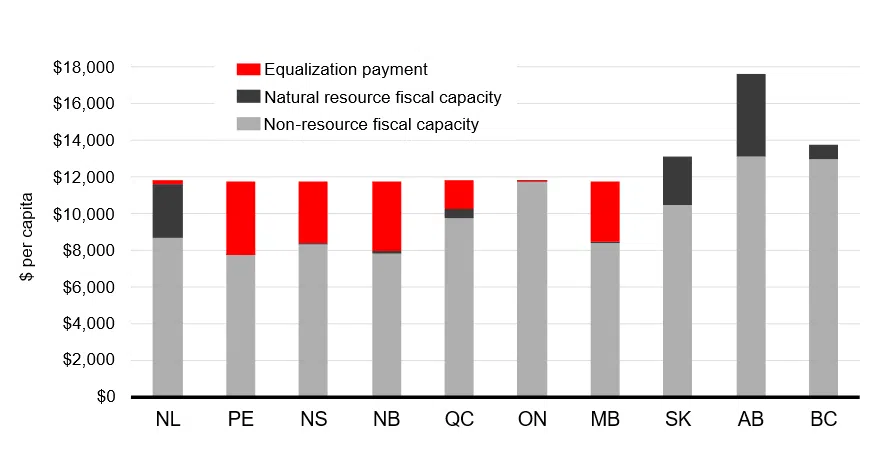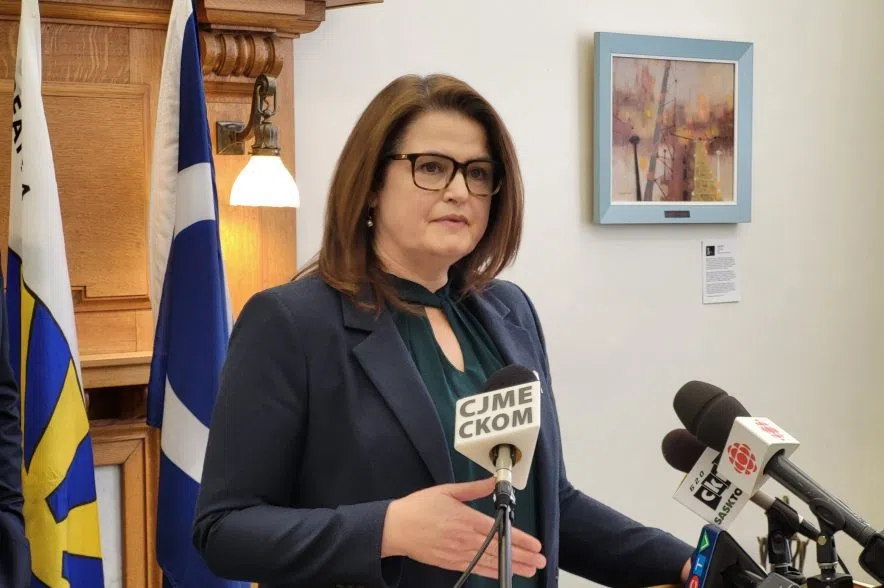The Saskatchewan NDP wants to see an update to the federal equalization payment system.
Leader Carla Beck announced on Monday that she and finance critic Trent Wotherspoon had sent letters to federal leaders requesting that the equalization formula treat renewable and non-renewable resource revenue equally.
Read more:
- Corey Mace on Maier, other moves as CFL winter meetings continue
- Guitar-making school in rural Sask. attracts students worldwide
- Earthquake delivers shaky start to Saskatoon woman’s vacation
Equalization is the Government of Canada’s transfer program for addressing fiscal disparities among provinces.
The letters were sent to Conservative Party Leader Pierre Poilievre, federal New Democratic Party Leader Jagmeet Singh, Bloc Québécois leader Yves-François Blanchet and those who have announced they are running for leadership of the Liberal Party.
“What we’re proposing here doesn’t undermine the basic tenets of equalization. What it does is call for fair treatment of natural resources,” Beck said.
“It’s a matter of fairness … this is not only a value that Saskatchewan people hold, I think Canadians hold that notion of equity and fairness. Currently, the (equalization) model does not meet that test.”
According to the provincial government, Saskatchewan has not received an equalization payment since the 2007-08 fiscal year.

This graph shows federal equalization for 2025-26. The formula operates with a 2-year data lag and a 3-year weighted moving average. Small variations in post-equalization fiscal capacity of receiving provinces reflect the partial exclusion of natural resource revenues in the formula. (Finance Canada)
The federal finance department says that in the case of equalization payments a province’s fiscal capacity is determined across five broad revenue categories: personal income taxes, business taxes, consumption taxes, property taxes, and natural resource revenues.
The fiscal capacity is not based on a province’s actual tax revenues, but on those it could raise with national average tax rates.
For natural resources, fiscal capacity is assessed based on partial inclusion of actual revenue collected by the province. However, a province’s equalization payment cannot raise its fiscal capacity above that of a non-receiving province when all resource revenues are taken into account.
Equalization payments are calculated on a per capita basis, then adjusted for provincial population.
Revised formula could address western alienation
Beck said a revised equalization formula could address concerns of western alienation and dissatisfaction with Ottawa.
“This is about having confidence in the equalization formula for people in this province. This is about strengthening Confederation,” Beck said. “This, I think, would have benefit, certainly to people in this province, but I think (also) in the larger goal of unity and a sense of fairness across the country.”
In early January, Premier Scott Moe criticized the equalization system on social media.
Some people have been wondering how much each province receives per capita in equalization payments.
Four provinces will get more than $3000 this year for every resident. While SK, AB and BC will get $0 per resident. pic.twitter.com/riiNTrnw3Q
— Scott Moe (@PremierScottMoe) January 4, 2025
“Some people have been wondering how much each province receives per capita in equalization payment,” Moe wrote in posts on X and Facebook. “Four provinces will get more than $3,000 this year for every resident. While SK, AB and BC will get $0 per resident.”
However, Beck accused the Sask. Party of flip-flopping its stance on equalization depending on who was in power, and criticized them for dropping a court challenge over the program in 2008.
Beck said the NDP’s stance on the issue has been firm for two decades.
“This has not been the case with the Sask Party. We saw that when Stephen Harper came to power, who broke his promise after being elected, and then we saw the Saskatchewan Party government roll over and drop the lawsuit,” Beck said.
“We need consistency. This is about fairness. Every Saskatchewan person needs to know that they have leaders provincially who will fight consistently for this issue.
“But moreover — and this was the point of the letter that we’ve written — Saskatchewan voters have the right for clarity for all of those who would seek to be prime minister of this country when it comes to this very important issue to Saskatchewan people.”
980 CJME reached out to the Sask. Party for comment but did not receive a response before publication.
— with files by CJME News
Read more:











